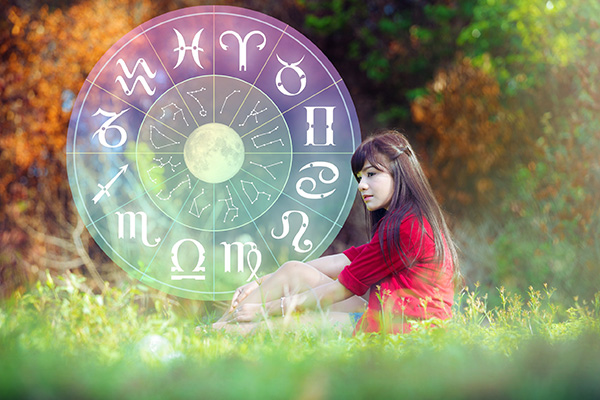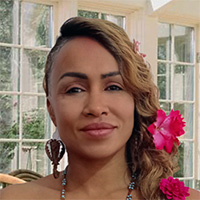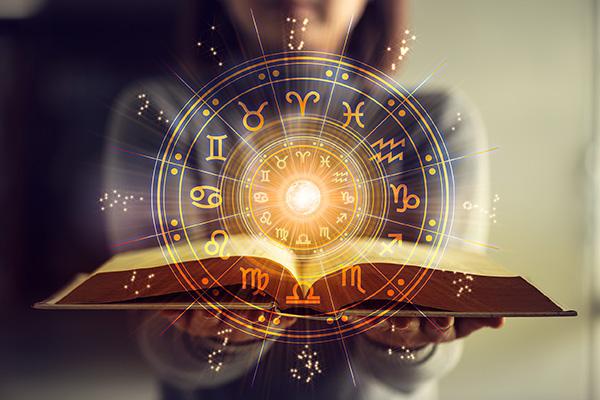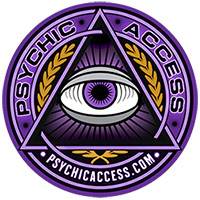 Meditation is an age-old and proven practice that provides extraordinary health advantages which can significantly influence our general happiness and well-being.
Meditation is an age-old and proven practice that provides extraordinary health advantages which can significantly influence our general happiness and well-being.
It also has the potential to alter our everyday experiences in impactful ways. Regular meditation practice can enhance your capacity to bring your wishes and aspirations to fruition.
Meditation serves as a pathway for transformative encounters with self and spirit. It establishes a channel of communication with the universe that feels exhilarating yet reassuringly familiar. It imparts wisdom, clarity, and tranquility, inviting you into a richer relationship with your own divinity.
Sadly, a lot of people find it difficult to incorporate meditation into their daily lives due to the distractions of constant stimulation and unyielding productivity. In a culture that prioritizes busyness, the notion of “remaining still” or “doing nothing” can appear strange or unsettling to many.
Another significant hurdle is the widespread belief that meditation necessitates a completely “empty mind.” This creates an unrealistic standard.
Given the regular interruptions, time constraints, and uncertainty about how to start, it’s evident why many individuals forego meditation. However, the beauty of meditation lies in its ability to meet you at your current state, with no need for perfection.
One of the most persistent misconceptions regarding meditation is the idea that your success depends on completely clearing your mind and erasing all thoughts. In truth, this represents just one form of meditation, a notably challenging one to master!
In the act of meditating, we’re not striving to conform to some ideal – in fact, it’s the opposite. We’re simply existing with our experience, however it manifests ~ Pema Chödrön
For novices in particular, the mind’s noise can feel amplified in silence, leading to frustration or feelings of failure when thoughts linger. For a newcomer to meditation, this might feel comparable to asking a toddler to tackle a college-level math equation.
While stillness meditation can be transformative and insightful, disengaging from distracting thoughts and doubts can be challenging. Our contemporary minds are quite accustomed to maintaining control at all times! Fortunately, there are simpler methods to initiate meditation practice.
Understanding Your Inner Terrain
Like anything else, mastering meditation requires time. It’s a practice that unites your brain with your spirit.
The primary concept to grasp is this: You are neither your brain nor your thoughts. You are also not your body or your feelings. These are merely experiences and perceptions. You process thoughts in your mind, sensations in your body, and emotional waves. However, these elements do not define you.
So, who or what is observing? The answer is your soul or spirit. This insight is crucial. Once you differentiate your spirit and soul from the workings of the mind and body, you can tame the relentless beast known as the untamed mind.
Instead of attempting to halt all thought, begin by giving your mind a meaningful task.
This is why I often suggest visualization meditation as a straightforward yet impactful entry point for new meditators. Unlike more intricate silent meditation techniques, this method actively engages the mind’s creativity and imagination in a fun, personal manner, making it approachable for beginners.
Imagination is the starting point of creation. You envision what you desire, you will what you envision, and ultimately, you create what you will ~ George Bernard Shaw
The Easiest Path Into Meditation
At its essence, creative visualization is a meditation method that incorporates two fundamental elements: intentionally manifesting your goals, desires, and aspirations, and mentally picturing specific results with emotional intensity. Rather than struggling to empty your mind of thoughts, you are encouraged to fill it with vivid, meaningful imagery that aligns with what you wish to attract into your life.
This practice is perfect for newcomers due to its clear framework and its function as a form of mental rehearsal. Whether the aim is to visualize better health, a new job opportunity, or a deeper sense of inner peace, the mind is gently trained to concentrate and channel energy toward a positive vision.
Neuroscience studies have demonstrated that the brain reacts to imagined experiences similarly to real ones. This reinforces connections associated with motivation, confidence, and emotional management. For beginners, this can aid in building focus and alleviating the anxiety often tied to starting a new meditation practice.
Moreover, this meditation style promotes a sense of empowerment. Rather than being a passive escape from life, meditation becomes an active tool for reshaping one’s internal dialogue and intentions. It encourages purposeful self-reflection, transitioning from mere wishful thinking to a grounded sense of possibility.
In summary, manifesting through creative visualization meditation transforms daydreaming into a mindful, transformative practice. This method is effective and particularly suited for those seeking a meaningful beginning on their meditation journey.
By dedicating just a few minutes of focused practice each day, beginners can start developing a more intentional and inspired mental landscape. Sometimes, envisioning the life you desire is the first step toward achieving it.
The purpose of meditation is not to eliminate thoughts or feelings. The purpose is to become more aware of your thoughts and feelings and to learn how to navigate through them without becoming trapped ~ Dr. J Goldin
How To Manifest With Visualized Meditation
Creative visualization is an extraordinarily effective manifestation technique. If you’ve never engaged in it before, begin with one simple intention. As you grow more comfortable, you can broaden your objectives and allow your vision to expand.
Start by contemplating your goals for your practice. At its core, meditation can be a tool to align your mind, body, and spirit with your objectives. These goals may involve lowering stress or anxiety, boosting vitality, enhancing mental clarity, lifting mood, and improving sleep.
Once you’ve established your intention, you’re set to begin. The following exercise serves as a gentle introduction to meditative visualization and will help you familiarize yourself with the fundamentals.
Step 1: Locate Your Space
Find a quiet area where you can sit comfortably and be free from interruptions. You can choose to sit cross-legged on the ground or in a chair, whatever is most comfortable for you. The key is to ensure your comfort and minimize any physical distractions during your visualization.
Rest your hands in your lap or on your knees with your palms facing up, whichever feels more natural. Maintain a straight spine, but don’t force yourself into a rigid stance. A straight spine helps energy flow more freely throughout your body. If you’re tense or holding an inflexible posture, that energy won’t circulate smoothly. Comfort comes before perfection.
Step 2: Breathe Into Awareness
After settling into a relaxed position, start to take notice of your breathing. Inhale deeply and slowly for a count of three, then gently exhale for a count of three.
Focus on the sensation of air entering your nose. Observe how cool it feels on your upper lip, how your lungs expand and seem to cradle your heart, and the sound of your breath moving within your body. Then, notice the warmth of your breath as it exits your nose.
Simply be present with your breath. Stay focused on this awareness for ten complete inhalations.
Step 3: Allow Thoughts to Drift By
You may find that thoughts start to intrude, and that’s perfectly fine. As thoughts come, permit them to arrive and then drift away. Don’t focus on them or follow them into narratives. But also, don’t attempt to force them away.
Instead, redirect your attention to your breath. Picture the thoughts floating by like clouds in the sky or leaves drifting down a stream. Count each breath until you reach the tenth inhalation. Consider this as a gentle reminder to your brain that it’s not in control at this moment.
Step 4: Visualize Your Goal
Now that your mind and body are settled, let your spirit direct your mind. Start to visualize what your life will resemble once you’ve achieved your goal. Be specific—and enjoy this process!
For instance, if your goal is to experience improved sleep at night, picture yourself peacefully lying in bed, feeling deeply relaxed and content. Envision waking up feeling rejuvenated and full of energy. Experience deep, rested vitality in your body and renewed clarity in your mind.
Remain in the visualization and enhance the details. Make it as vibrant as possible. Imagine that you are already inhabiting that reality—right now. Engage all your senses: What do you see? What do you hear? Smell? Taste? Feel? What sensations are in your body? What thoughts are present? What emotions emerge as you focus on this fulfilling vision?
Step 5: Gently Return To The Present
When you’re ready, shift your focus back to your breath. Aim to transition out of meditation smoothly, rather than jolting yourself back into everyday thoughts.
Concentrate on your breathing for ten more breaths. Around the seventh breath, gently wiggle your fingers and toes to awaken your body. Take a few more calm breaths. On the tenth breath, gradually open your eyes and fully reconnect with your body.
Step 6: Reflect On The Experience
Spend a few quiet moments reflecting. How do you feel? Did anything unexpected arise during your meditation?
Don’t stress about the length of time you spent “in” the meditation. Initially, your sessions may only last a few minutes. As you continue practicing, the duration will naturally extend. You might even find yourself hesitant to leave because it is such a profoundly tranquil state.
Beginning with imagery and imagination fosters focus, emotional awareness, and intentionality, which are essential for various meditative practices. From this point, you can gradually delve into other styles to enrich your practice and uncover what resonates most with your evolving self.
Meditation connects you with your soul, granting you access to your intuition, your heartfelt desires, your integrity, and the inspiration to craft a life you cherish ~ Sarah McLean
Elevating Your Meditation Practice
Once you feel comfortable with visualization meditation, a wider meditative realm beckons. Below is an alphabetical listing of various meditation types you might wish to explore in the future. Each type builds upon the foundational strengths developed through creative visualization.
✵ Affirmation-Based Meditation: Positive affirmations are repetitively utilized in a meditative state to redefine limiting beliefs and foster a more empowered mindset.
✵ Body Scan Meditation: A slow, mindful exploration of your physical sensations from head to toe. This approach aids in developing somatic awareness and can be particularly effective for stress reduction and enhancing sleep.
✵ Breath Awareness (Pranayama) Meditation: Here, you center your attention solely on your breath, often counting or adjusting your rhythm. This type of meditation reinforces mental discipline and connects the body and mind through rhythmic harmony.
✵ Chakra Meditation: An energy-oriented practice that involves focusing on the body’s chakra points through visualization, color, or sound to balance internal energies. It is both spiritual and intuitive and is frequently paired with breathing or mantra exercises.
✵ Guided Meditation: A teacher or recording gently guides you through imagery, affirmations, or sensations, making it ideal for beginners or those seeking a structured inner exploration.
✵ Kundalini Meditation: This dynamic meditation method is aimed at awakening dormant energy at the base of the spine. It often incorporates breathwork, chanting, and specific physical movements to initiate spiritual transformation.
✵ Loving-Kindness (Metta) Meditation: A heart-centered practice that fosters compassion and goodwill toward yourself and others. By repeating phrases such as “May I be happy, may you be safe,” it gently reshapes your internal dialogue and interpersonal relationships.
✵ Mantra Meditation: In this practice, you silently or audibly repeat a word, phrase, or sound like “Ohm” to anchor your attention. It is often employed in yogic and Vedic traditions to facilitate clarity and stillness. The vibrations of these sounds align the practitioner to a desired state or frequency.
✵ Mindfulness meditation: Grounded in Buddhist principles, this practice involves observing thoughts, sensations, and emotions without judgment. It teaches you to be fully engaged in the present moment, appreciating your breath, body, and fleeting thoughts like clouds in the sky.
✵ Sound Bath Meditation: This meditation immerses you in resonant tones from instruments such as singing bowls, gongs, and chimes, helping to soothe the nervous system and realign energetic frequencies.
✵ Tantric Meditation: Rooted in ancient Hindu and Buddhist practices, this method often weaves together breathwork, visualization, and subtle energy movement to awaken divine consciousness.
✵ Transcendental Meditation (TM): A registered technique in which a specific personal mantra is silently repeated to surpass ordinary thought. Practiced twice daily, TM is recognized for inducing deep relaxation and enhanced awareness.
✵ Trataka (Candle Gazing) Meditation: This focused meditation entails gazing at a candle flame to enhance concentration and awaken inner vision. This practice is said to stimulate the third eye and deepen intuitive clarity.
✵ Visualization Meditation: This method involves conjuring vivid mental imagery, often of healing light, sacred places, or future manifestations, to align intention with spiritual energy. It is a potent tool for manifestation and intuitive growth.
✵ Walking Meditation: In this practice, movement serves as the anchor instead of stillness. Each step is taken with deliberate attention to physical sensation, creating a meditative awareness in action. This approach is ideal for restless minds or nature enthusiasts.
✵ Yoga Nidra (Yogic Sleep): A deeply restorative, guided form of meditation that leads you into a state between wakefulness and sleep. It fosters relaxation, healing, and a connection to the subconscious.
✵ Zen (Zazen) Meditation: A seated, often silent practice that encourages letting go of thoughts rather than engaging with them. It invites stillness and awareness without effort or judgment.
As your practice develops, you may discover that different styles are beneficial at various times. Some days may call for silence, while others may require compassion or movement. The essential element is gentle exploration. Allow your meditation to evolve alongside you. Ultimately, meditation is not about achieving a “perfect” state; it’s about learning to exist in the present moment with greater awareness and peace.
|
 About The Author: Seraphim About The Author: Seraphim
Sarah is a natural Clairvoyant, Clairaudient and Empath whose practice has been built largely by word-of-mouth. As a child her abilities came to the fore through precognitive dreams and messages she received. Her connection with Spirit was never more personal than the visit she received from her mother who passed, in which she conveyed the moving message that she loved her. Not long after her death she discovered her mom’s Tarot deck, which launched Sarah on her journey and life-calling to explore a vast array of her gifts, one of them Eye-Gazing, a psychic tool she developed herself! Sarah continues to receive steady guidance and messages directly from Spirit Guides and Angels, and has maintained a steady and successful private practice in Canada, since 1995. Very active in her spiritual community, she’s often called upon to lead local events, including group meditations. The practice of meditation, she confides, has changed her life in profound ways. Sarah has developed The Sacred Art of Creation, leading empowered women’s circles that facilitate self-healing, manifestation and alignment with one’s higher self. If you’d like a reading with a compassionate reader who can both hear and convey direct messages from Spirit Guides and Angels, you can find Sarah at PsychicAccess.com.
|
Meditation has been a longstanding practice aimed at calming the mind, alleviating stress, and enhancing overall wellness. However, did you know that meditation can also assist you in manifesting your ideal life? By integrating meditation into your daily routine, you can unlock the potential of your mind to create the life you truly desire.
Here are some strategies for manifesting your best life through meditation practice:
1. Define your intentions: Prior to commencing your meditation, take a few moments to clarify your intentions regarding what you wish to manifest in your life. Whether it’s a new job, improved relationships, or better health, be specific about what you want to bring into your reality.
2. Envision your objectives: While meditating, picture yourself already experiencing the life you yearn for. Visualize yourself in your dream position, surrounded by supportive relationships, or enjoying robust health. The more vividly you can imagine your aspirations, the more likely they are to materialize.
3. Cultivate gratitude: Gratitude is a potent force for manifesting your best life. Allocate some time during your meditation to express thankfulness for the blessings you currently possess, both large and small. By concentrating on what you already have, you can draw more abundance into your life.
4. Let go of limiting beliefs: Many of us cling to limiting beliefs that can prevent us from realizing our optimal life. Utilize your meditation to identify and release these beliefs, substituting them with positive affirmations that align with your goals.
5. Commit to consistency: Like any other skill, meditation demands regularity to yield results. Pledge to meditate consistently, even if it’s just for a few minutes daily. Over time, you will begin to see positive transformations in your life.
6. Have faith in the process: Manifesting your ideal life through meditation is a journey that necessitates patience and trust. Have faith that the universe is working for you and that your aspirations will come to fruition at the right moment. Remain open to embracing the blessings that come your way.
In conclusion, meditation can serve as a significant instrument for manifesting your desired life. By setting intentions, visualizing your goals, expressing gratitude, releasing limiting beliefs, staying committed, and trusting the process, you can forge the life you aspire for. Incorporate meditation into your daily routine, and watch as your aspirations turn into reality. Continue reading →
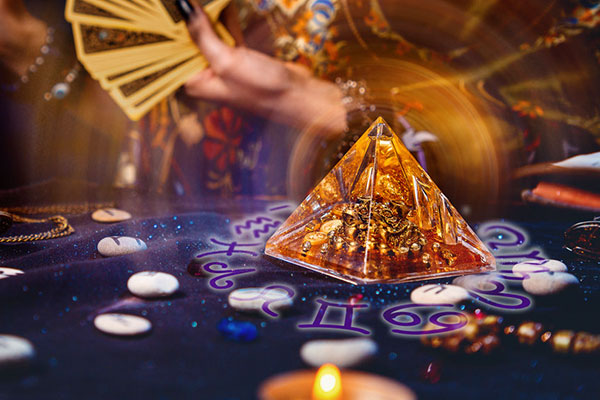 Throughout an average lifetime, the sun will traverse above us twenty-five thousand times. If you were to take a stroll one mile due west each day of your life (if such a land journey were feasible), your life would conclude at the very spot where it originally began.
Throughout an average lifetime, the sun will traverse above us twenty-five thousand times. If you were to take a stroll one mile due west each day of your life (if such a land journey were feasible), your life would conclude at the very spot where it originally began.

